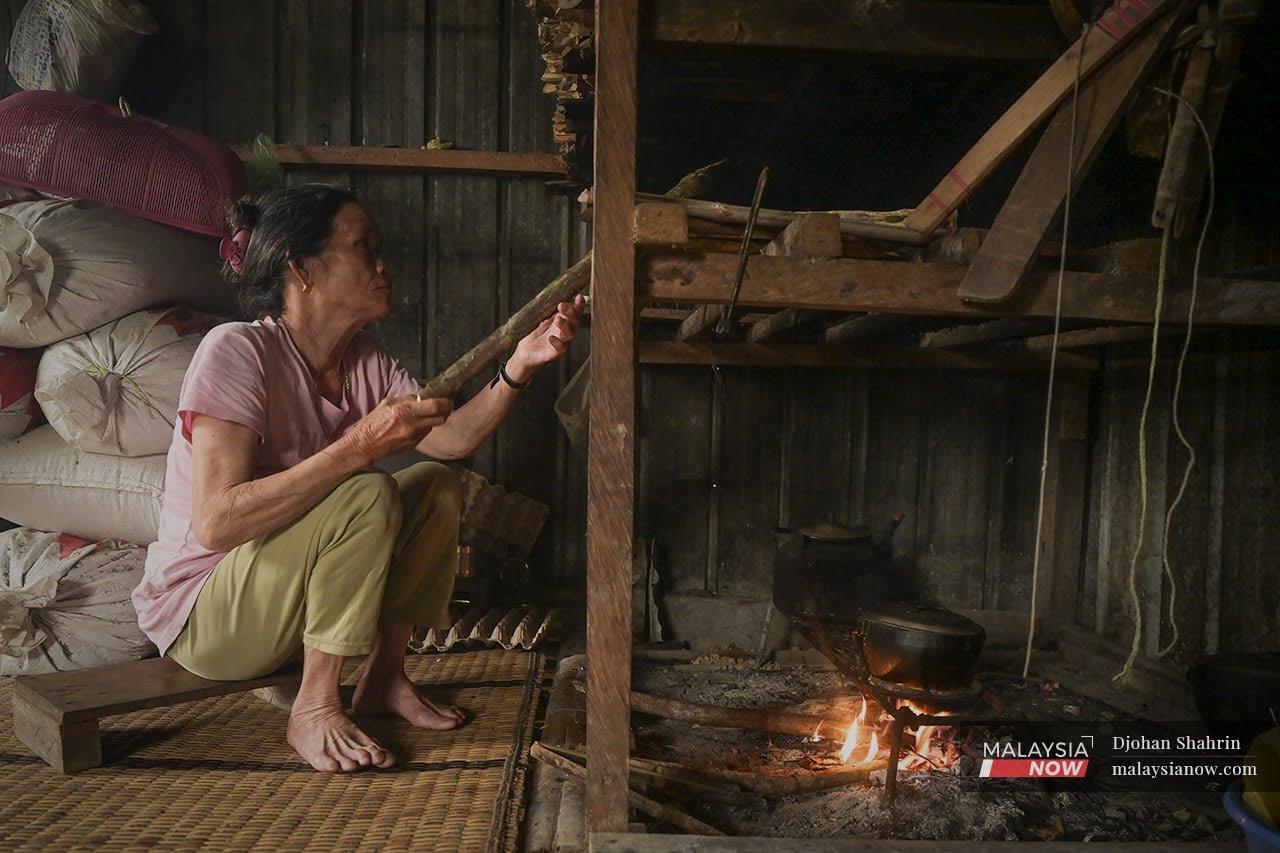Bidayuh families separated by border line mark another Christmas apart
But they wait in hope for the day when the Covid-19 pandemic ends and they will be able to reunite once more.
Just In
The days leading up to Christmas would normally find Dadun Sikau hard at work, preparing traditional goodies and keeping an eye on festive activities throughout her village of Kampung Sapit, about 65km from the capital city of Kuching.
As a village elder, she has many responsibilities but she would always find time to focus on her family’s arrangements as well. These include the preparation of a glutinous rice dish called pangkang and chicken cooked in bamboo, which is known as chicken pansoh.
Sixty-year-old Ngug meanwhile made it his yearly task to trek through the jungles of Mount Saraong. There, he foraged for jungle produce, hunting wild boar to be slaughtered and enjoyed in a feast at the barok or communal hall.
Others in the village would be busy decorating, creating an air of festivity enjoyed by young and old alike.
Nestled at the foothills of Ulu Padawan, Kampung Sapit is home to some 450 Bidayuh Biyatah who settled at the picturesque Borneo Highlands marking the border with Kalimantan.
From Kuching, it is accessible by car although the drive takes about two hours. The journey is much shorter coming from Indonesia, across the border – only 20 minutes.

The Christmas season would usually see a flurry of activity with residents from several villages coming together to enjoy the celebrations.
In Sarawak, festivals are celebrated by all regardless of race or religion, and the same holds true for Christmas. Villagers seize the opportunity to visit friends, family and neighbours alike while children and teenagers sit in airy bamboo porches known as tanju, practising their songs for carolling.
“Christmas is always a fun and joyous occasion in the village because the older folk look forward to meeting family members who return home from the cities,” Paulina, Dadun’s daughter and a mother of two, said.
“It is a merry time when all Sarawakians come together from far and wide.”
Speaking to MalaysiaNow, she said the villages near Ulu Padawan would organise all sorts of activities including the singing of Christmas carols, telematches, treasure hunts, beauty pageants for the children, choirs and Christmas decoration competitions.
“There would be a lot of karaoke singing too,” Paulina said. “But this year, not everyone will be able to return to the village.”
There will be no carolling, either, so the villagers will have to content themselves with listening to the choir presentations and gathering at their community hall known as the barok or panggah.
Even the hunt for game such as wild boar has been only a memory for the past two years.

But the villagers are hopeful for a better Christmas season this year.
“What the old people say is, we should have at least the aura of Christmas here, with the smell of bamboo,” Paulina said.
The humble plant plays an important role in the lives of the Bidayuh, who would use its wood to fix or replace their bridges leading up to Gawai and Christmas Eve.
Years ago, the only way to access the village was by foot, through the jungle and across a number of such bridges.
Now, with better road development, the village is able to hold bigger Christmas celebrations – or it did, before Covid-19.
This year, there are no large gatherings of family members from villages across the border.
Before the arrival of Covid-19, the Kampung Sapit villagers would meet up with their relatives in Kampung Gun Tembawang in Kalimantan, about 20 minutes’ walk away. Both villages are home to Bidayuh communities, who are all closely related.
For years, occasions like Gawai and Christmas were opportunities for villagers from both sides of the border to meet up.
Every year on Christmas Eve, they would gather at the chapel in Kampung Sapit to pray.
“Usually, our group and theirs will carol together, going around the neighbourhood, singing Christmas songs together from house to house,” 16-year-old Azlyn Begus told MalaysiaNow.
Due to the fast-spreading Omicron variant, though, the borders have remained closed this year. For a second Christmas in a row, families from across the border have been unable to reunite.
Still, they wait patiently and in hope for the day when the pandemic ends, and they will be able to gather for Christmas once again.
Subscribe to our newsletter
To be updated with all the latest news and analyses daily.
